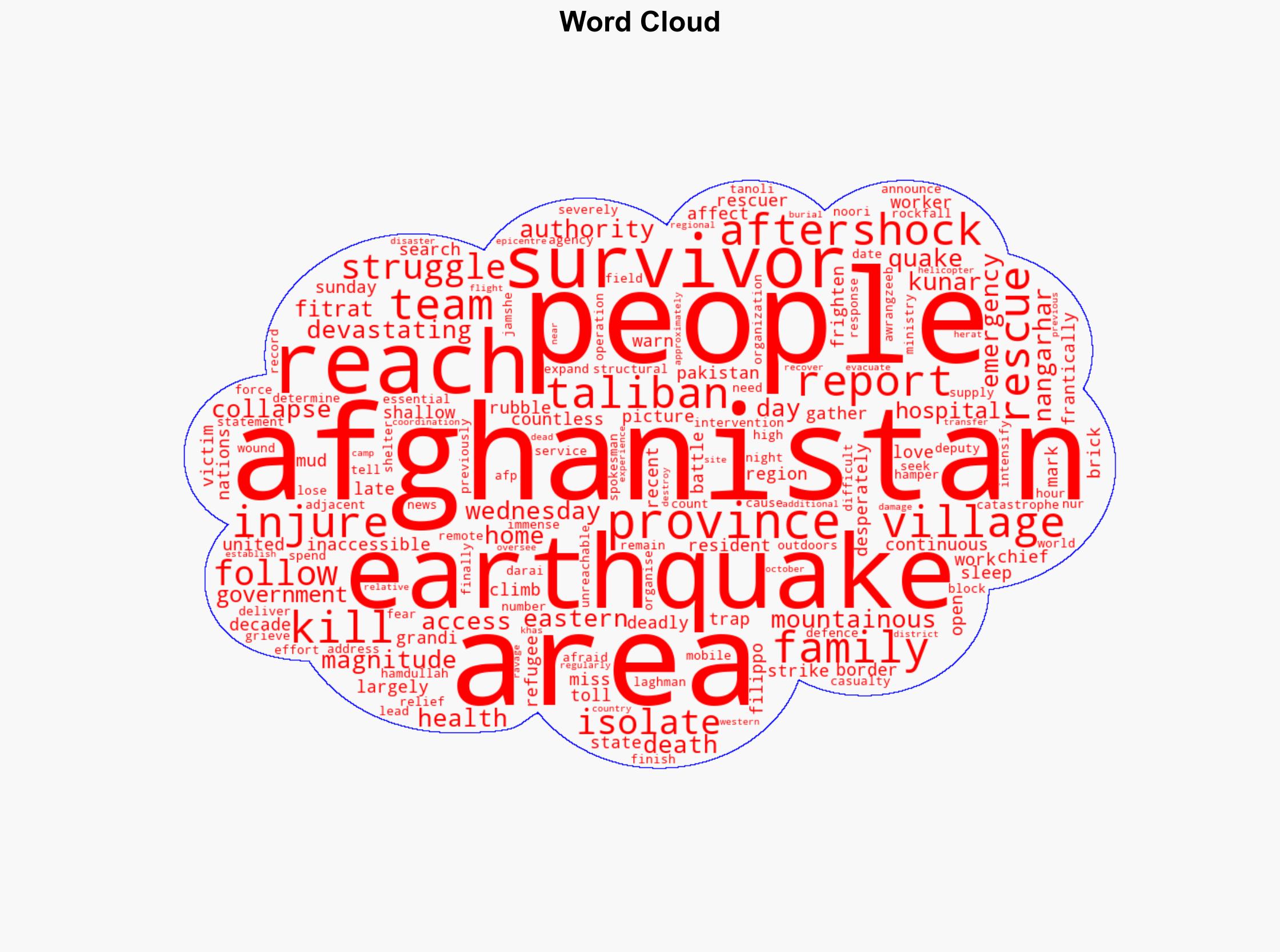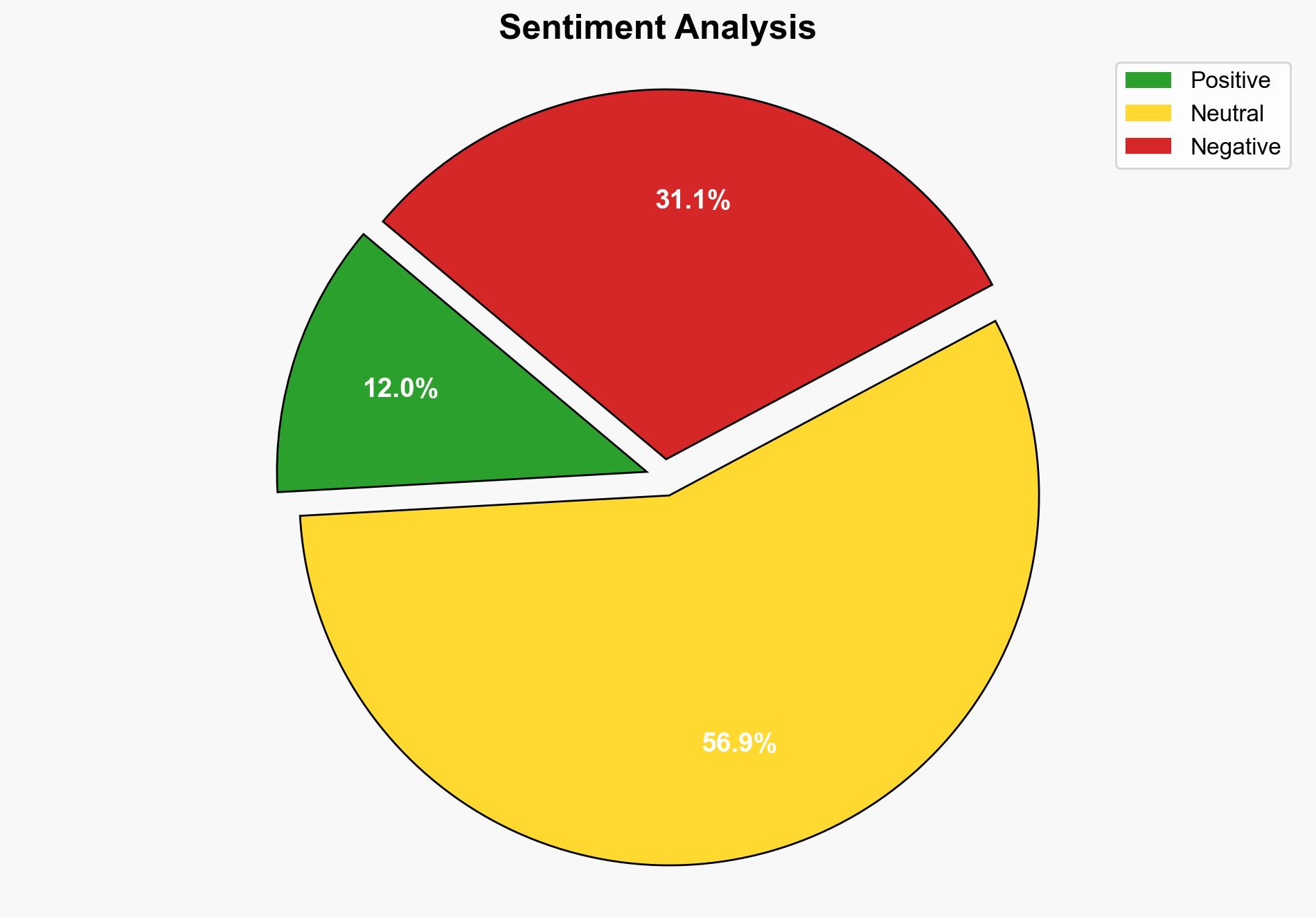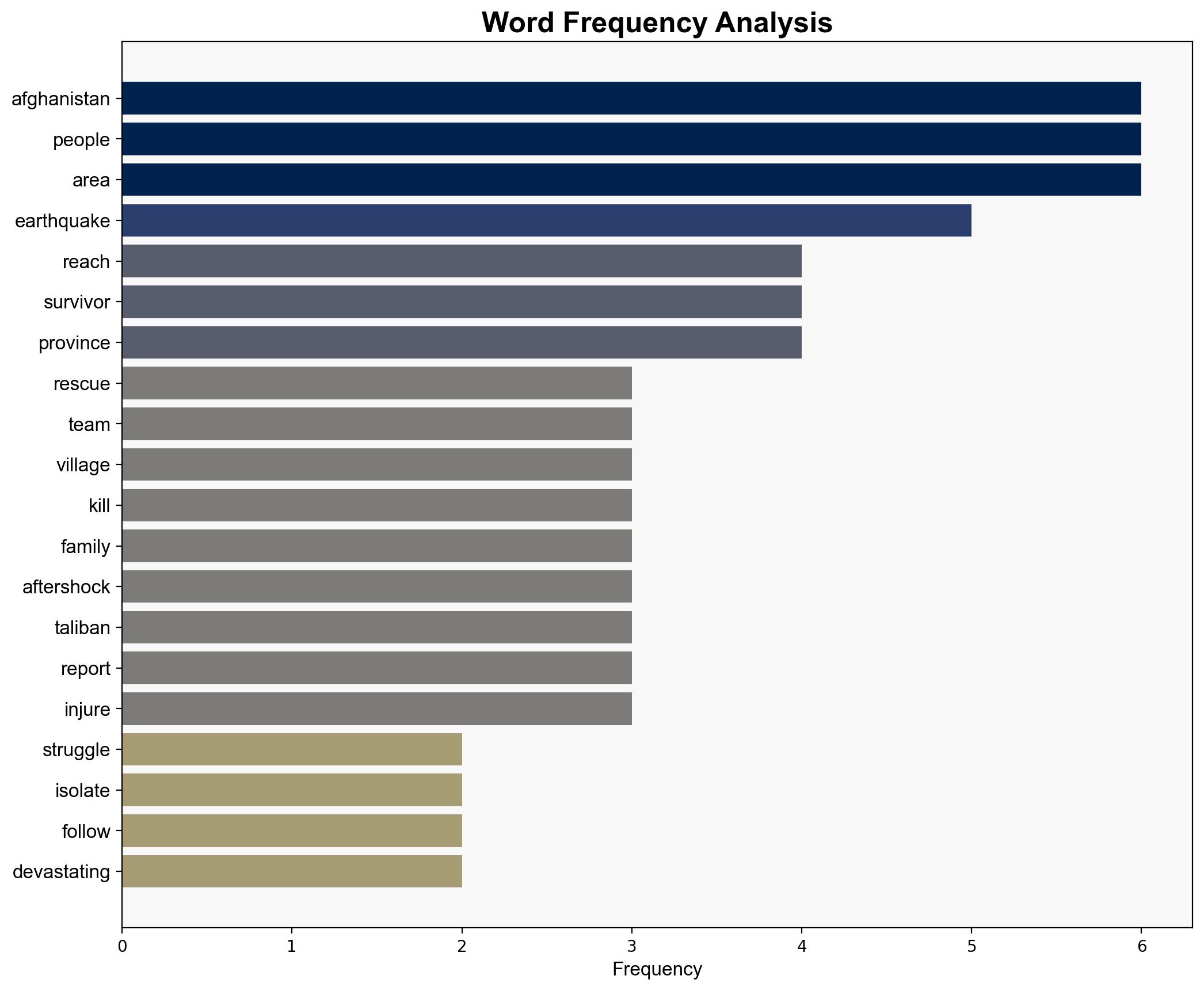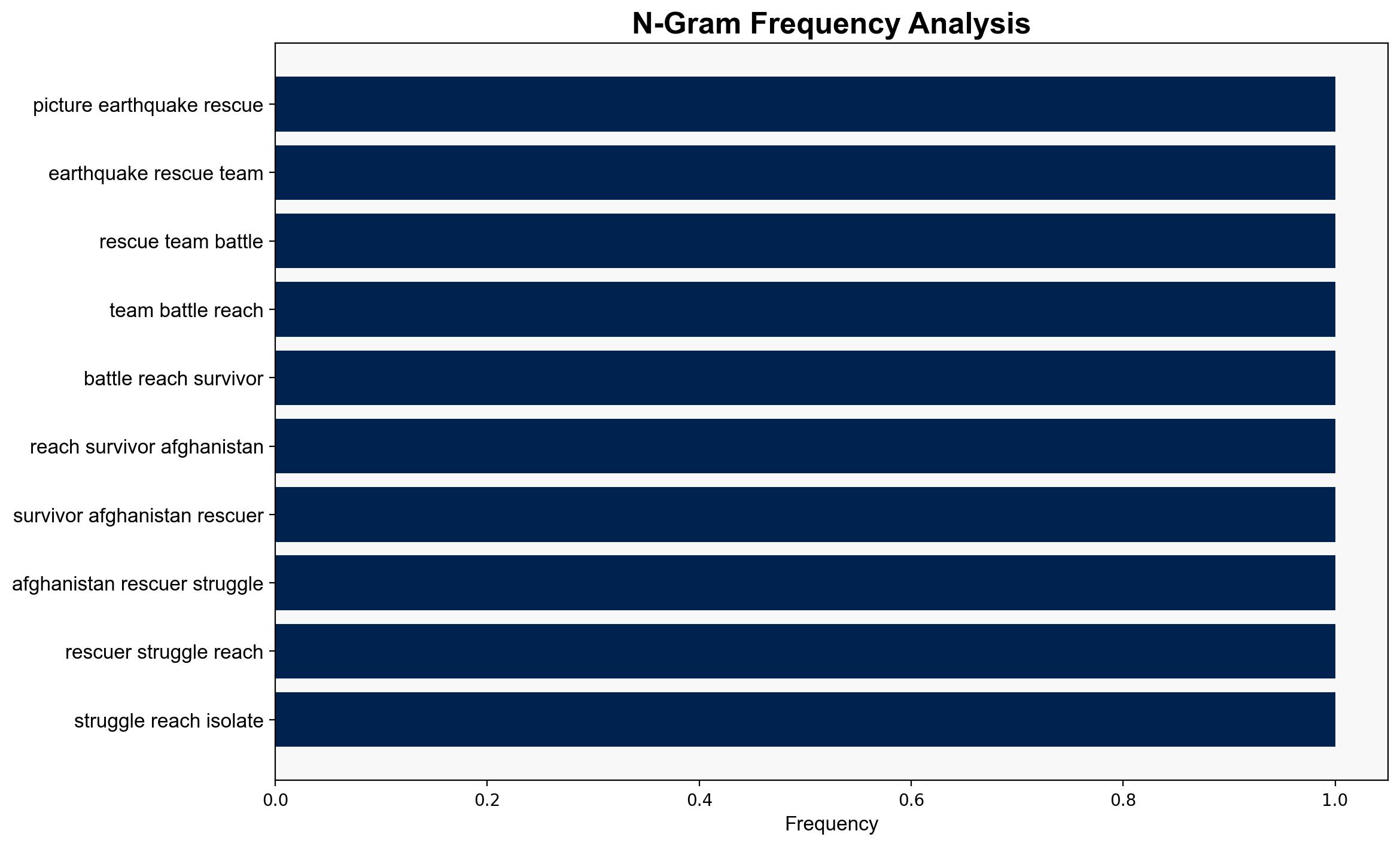Earthquake rescue teams battling to reach survivors in Afghanistan – Al Jazeera English
Published on: 2025-09-04
Intelligence Report: Earthquake rescue teams battling to reach survivors in Afghanistan – Al Jazeera English
1. BLUF (Bottom Line Up Front)
The most supported hypothesis is that the earthquake response in Afghanistan is severely hampered by logistical challenges and political instability, leading to a protracted humanitarian crisis. Confidence in this assessment is moderate due to limited access to remote areas and potential information gaps. Recommended actions include international coordination to enhance logistical support and diplomatic engagement to ensure effective aid distribution.
2. Competing Hypotheses
Hypothesis 1: The rescue efforts are primarily hindered by geographical and logistical challenges, exacerbated by aftershocks and infrastructure damage. This scenario suggests that the primary obstacle is the physical inaccessibility of affected regions, which delays aid and rescue operations.
Hypothesis 2: Political instability and inadequate governance by the Taliban authorities are the main factors impeding effective disaster response. This hypothesis posits that the lack of international recognition and support for the Taliban government limits their capacity to coordinate and execute efficient relief operations.
Using ACH 2.0, Hypothesis 1 is better supported by the evidence of continuous aftershocks, blocked access routes, and the geographical isolation of affected areas. However, the role of political factors cannot be entirely dismissed.
3. Key Assumptions and Red Flags
Key assumptions include the belief that logistical challenges are the primary barrier to effective rescue operations. A red flag is the potential underreporting of political factors due to limited media access and possible censorship. There is also an assumption that international aid can be effectively mobilized despite geopolitical tensions.
4. Implications and Strategic Risks
The ongoing crisis could exacerbate regional instability, potentially leading to increased displacement and humanitarian needs. The lack of effective governance might result in prolonged suffering and could be exploited by extremist groups to gain influence. Economic impacts include strain on local resources and potential disruption of regional trade.
5. Recommendations and Outlook
- Enhance international logistical support through airlifts and coordinated relief efforts to overcome geographical barriers.
- Engage diplomatically with Taliban authorities to facilitate aid distribution and ensure transparency.
- Scenario-based projections:
- Best Case: Successful international intervention leads to efficient relief operations and stabilization.
- Worst Case: Continued inaccessibility and political obstacles result in a prolonged humanitarian crisis.
- Most Likely: Gradual improvement in relief efforts with persistent challenges due to aftershocks and political issues.
6. Key Individuals and Entities
Filippo Grandi, Awrangzeeb Noori, Hamdullah Fitrat, Jamshe Tanoli.
7. Thematic Tags
national security threats, humanitarian crisis, regional instability, disaster response





